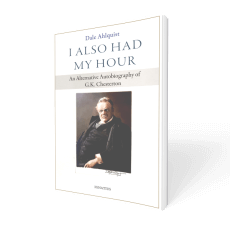Pastors’ perspectives on the wisdom of G.K. Chesterton.
The Satisfied Crocodile: Essays on G.K. Chesterton by Father James Schall, S.J.
In his many books, James V. Schall, S.J., has taken readers on familiar and fascinating walks with such giants as Plato, Augustine, Jacques Maritain, Josef Pieper, Hilaire Belloc, Paul VI, John Paul II, Benedict XVI, and Flannery O’Connor. He has written brilliantly on politics, philosophy, theology, economics, ethics, literature, popular culture and classical learning.
But only one writer has given him the opportunity to write about all these things at once. Only one writer has continued to provide material for a regular column that has gone on for almost thirty years. And only one writer could evoke so startling an image as “a satisfied crocodile.”
G.K. Chesterton.
Here is a colorful, provocative and always lively journey across the vast landscape of Chesterton, led by one of the most distinguished scholars of our time. One great thinker taking on another, shedding light on light, as well as on everything else.
The Scrappy Evangelist: Chesterton and a New Apologetics for Today by Father Paul Rowan
How do we defend the faith in today’s world? Where are the connecting points with an audience that does not like or does not even care about religion? What will prevent us from being merely reactionary? Surprisingly, the best strategy may come from a writer who anticipated our present problem a hundred years ago: G.K. Chesterton.
In this scholarly, yet scrappy approach, English Priest and Former Boxer Paul Rowan masterfully makes the case of how Chesterton can be used to develop a new apologetics to engage the post-modern age.
Bonus Add-on! Jousting with the Devil: Chesterton’s Battle with the Father of Lies by Father Robert Wild
Father Wild explores G.K. Chesterton’s encounter with the reality that is Satan. Whether or not you are familiar with Chesterton, you will be surprised at how familiar Chesterton is with this subject. Though he seems to have an intuitive sense of truth whatever his subject matter, when Chesterton writes about the Devil, he knows what he is talking about for more than intuitive reasons because his wisdom is supplemented by personal experience.





